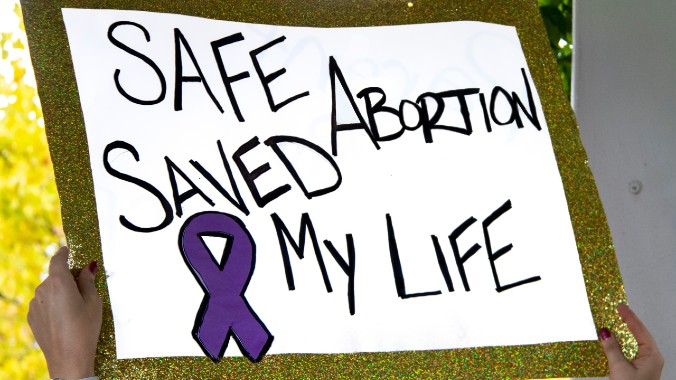Texas Supreme Court Dismisses Women Who Nearly Died From State Abortion Ban
Over 20 women represented by the Center for Reproductive Rights sued the state for endangering their lives because the state abortion ban's so-called medical emergency exception is too ambiguous to be effective. The state Supreme Court unanimously turned them away.
Photo: Shutterstock AbortionPolitics
On Friday morning, the Texas Supreme Court unanimously rejected a landmark lawsuit filed by nearly two dozen women who say the state’s abortion ban endangered their lives due to the ambiguity of its exception for medical emergencies. First filed last year, the women’s lawsuit argued that because of the abortion ban, which threatens doctors with prison time and fines up to $100,000, emergency abortion care is being denied or delayed until patients are on the brink of death and sometimes forced to suffer long-term health ramifications.
During a two-day trial last summer, the plaintiffs, represented by the Center for Reproductive Rights, offered harrowing testimony about what the abortion ban forced them to endure as they suffered through nonviable, dangerous pregnancies and weren’t able to get the abortion care they needed. In August 2023, a Travis County judge sided with the plaintiffs and issued a temporary injunction that permitted Texans suffering from emergency pregnancy complications to receive abortion care as needed. Texas Attorney General Ken Paxton (R) immediately appealed this ruling, blocking it from taking effect pending a decision from the state Supreme Court.
And on Friday, the Texas Supreme Court overturned the Travis County judge’s ruling altogether and claimed that it “departed from the law as written without constitutional justification.” The opinion argues that “because the trial court’s order opens the door to permit abortion to address any pregnancy risk, it is not a faithful interpretation of the law.” The ruling was unanimous. It can really only be interpreted as Texas officials—yet again—dismissing pregnant people’s lives and inevitably condemning some to death.
Nancy Northrup, president of the Center, called the ruling “deeply offensive to the women we represent—they are completely written out of the opinion as though they don’t exist or matter.”
“We are enormously disappointed that most of the women who sued Texas for what happened to them have been rejected by the Court,” Northrup’s statement continues. The Center is currently evaluating any possible next steps: “It is unclear at this point if the case will continue but our legal team will be assessing what, if anything, remains of our clients’ claims.”
-

-

-

-

-

-

-

-

-

-

-

-

-

-

-

-

-

-

-

-

-

-

-

-

-

-

-

-

-

-

-

-

-

-

-

-

-

-

-

-








































